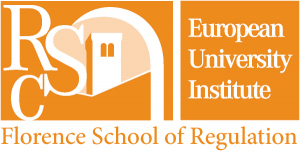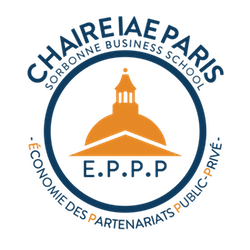June 25-26, 2020 9th Conference on the Regulation of Infrastructures

9th Conference on the Regulation of Infrastructures.
Sector coupling: how to regulate convergence ?
June 25th – 26th, 2020
Florence School of Regulation
Florence (Italy)
The EPPP research group collaborates actively with the Florence School of Regulation (FSR) water group (http://fsr.eui.eu/water). We are also involved in the organization of this series of conferences on the regulation of infrastructures since 2012. This event is organized every year by the FSR in Florence.
The Conference on the Regulation of Infrastructures is the annual event that brings together all the Areas of the Florence School of Regulation
Introduction
Most infrastructures have developed independently from one another and constitute self-contained socio-technical systems. This is, for example, the case of electricity, of gas, of telecommunications, of air transport, but also of railways. Consequently, also regulation was set up in a self-contained sector-specific manner.
However, this way of doing things cannot continue into the future, as the different infrastructure sectors are converging. This is, first, because of the technological and economic dynamics that has been triggered by liberalisation, and which has led to new technologies, often at the interface of the different sectors (e.g., power-to-gas), along with corresponding cross-sectoral business strategies. Convergence also results from recent developments of digital networks (and in particular of the fifth generation of wireless technologies, the 5G) which increasingly act as driver of convergence between sectors, leading to cross-sectoral and much more integrated infrastructures services (e.g., “Mobility-as-a-Service” or MaaS). The take-off of the Internet of Things (IoT) based on 5G networks, which is addressed as the next Industrial Revolution, is expected to accelerate this trend. Finally, climate and other ecological challenges force a direct comparison among different sectors, such as in the case of externalities caused by energy generation (by renewables or by fossil fuels) or by the different transport models. For all three reasons, a more convergent view of the different network industries is rapidly emerging … but will it translate into converging regulation or even into the regulation of convergence? Such is the topic of the 9th Florence Conference on the Regulation of Infrastructures.
More precisely, we look for contributions that link different infrastructure sectors, especially in terms of regulating interfaces between the different sectors, as well as regulating more integrated and converging sectors. Contributions utilising multidisciplinary as well as interdisciplinary approaches to regulation are welcome. Papers linking academia and practice, as well as policy research papers are particularly encouraged.
The conference is intended for academics such as PhD students, PostDocs and Assistant/associate/full Professors as well as academically minded practitioners.
Conference Structure :
The format of the Florence Conference on the Regulation of Infrastructures is unique, in that we favor quality over quantity:
- Each presenter has 45’, which includes 20’ of presentation, 10’ of qualified feedback and 15’ of discussion with the audience;
- Feedback will be given by senior professors associated with the Florence School of Regulation who are specifically knowledgeable about the topic at hand;
- Papers retained for publication will receive additional feedback beyond the Conference.
Timeline
Submission of the abstract by 3 February 2020 (download the guidelines) using the online form.
For any issues regarding the submission, please contact Ms Irina Lapenkova at FSR.Transport@eui.eu;
- Notification of acceptance by 2 March 2020;
- Submission of the full paper by 24 May 2020; participants who fail to submit a full paper by this deadline will be automatically removed from the programme;
- Conference on 25-26 June 2020 in Florence (Italy).
Conference fee
- 150 EUR
For cancellations received by 25 May 2020, the paid fees will be fully refunded. No refund will be issued for cancellations made after this date. Cancellations must always be made by email to RSCAS.Conferences@eui.eu
Guidelines for the abstract
- 600-1000 words
- Title of the paper & keywords
- Name of the author(s) and full address of the corresponding author
- The aim and methodology of the paper
- Results obtained or expected
Publication opportunities
- Papers will qualify for the Journal Competition and Regulation in Network Industries, which is published by Sage as of 2017.
- A summary of the 4-5 best papers will have the chance to be published in the dedicated issue of the Network Industries Quarterly (Issue 22, Vol 3, September 2020), which distributes to approximately 4000 people.
Organizing Committee
- Prof Simone Borghesi (EUI, Part-time professor and Director of the Climate Area of the FSR. Siena University, Professor)
- Prof Matthias Finger (EUI, Part-time professor and Director of the Transport Area of the FSR. EPFL, Professor and Director of the Chair of Management of Network Industries)
- Prof Jean-Michel Glachant (EUI, Robert Schuman Chair, Director of the FSR, Director of the Energy & Climate Area of the FSR, Holder of the Loyola de Palacio Chair)
- Prof Juan Montero (EUI, Part-time professor of the Transport Area of the FSR, Professor of Administrative Law and Regulation in UNED University (Madrid)
- Prof Pier Luigi Parcu (EUI, Part-time professor and Area Director of the FSR Communications & Media, CMPF)
- Prof Stéphane Saussier (EUI, Part-time professor and Director of the Water Area of the FSR. IAE de Paris, Professor and Director of the EPPP Research Group)
Registration
For information on registration, please contact FSR.Transport@eui.eu.
9th Conference on the Regulation of Infrastructures


